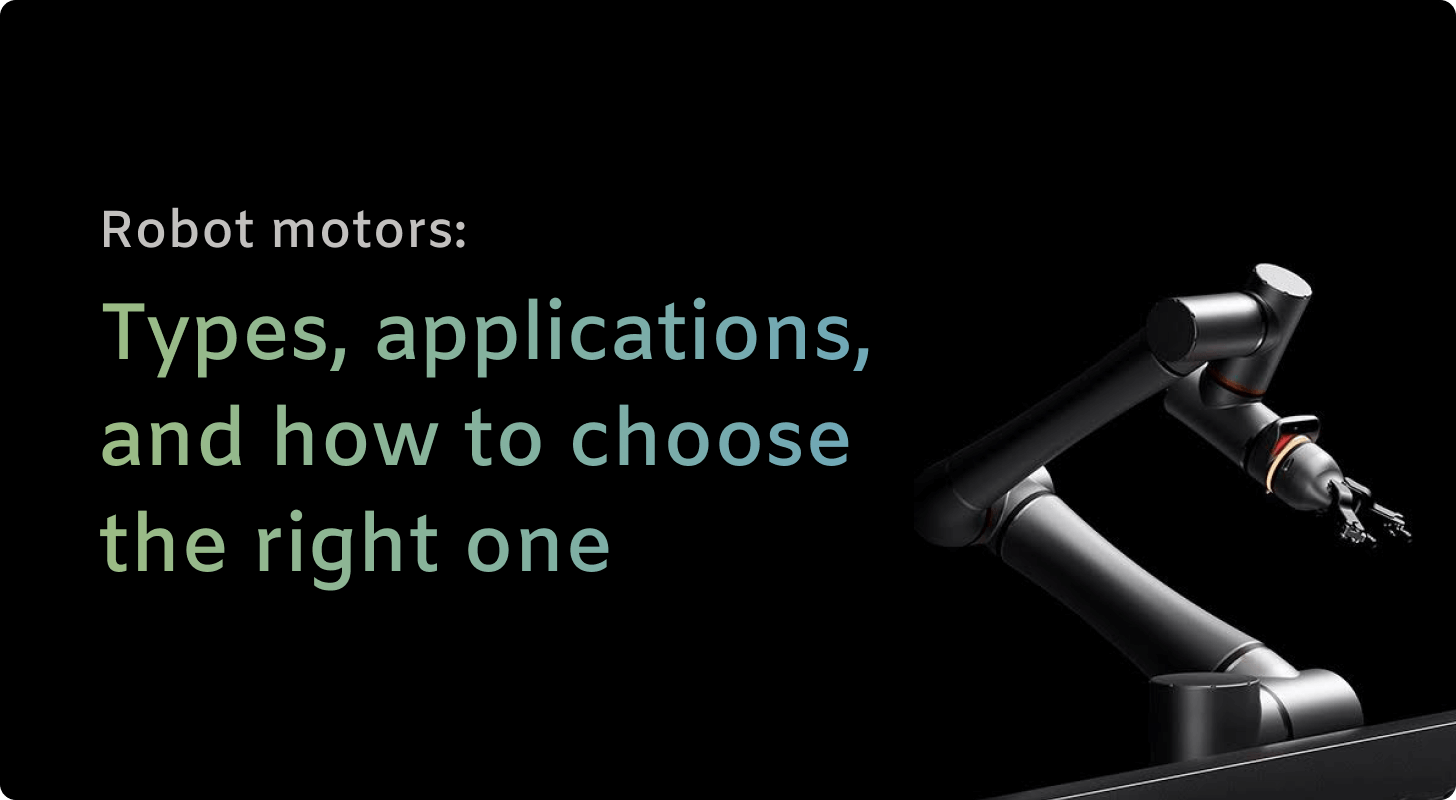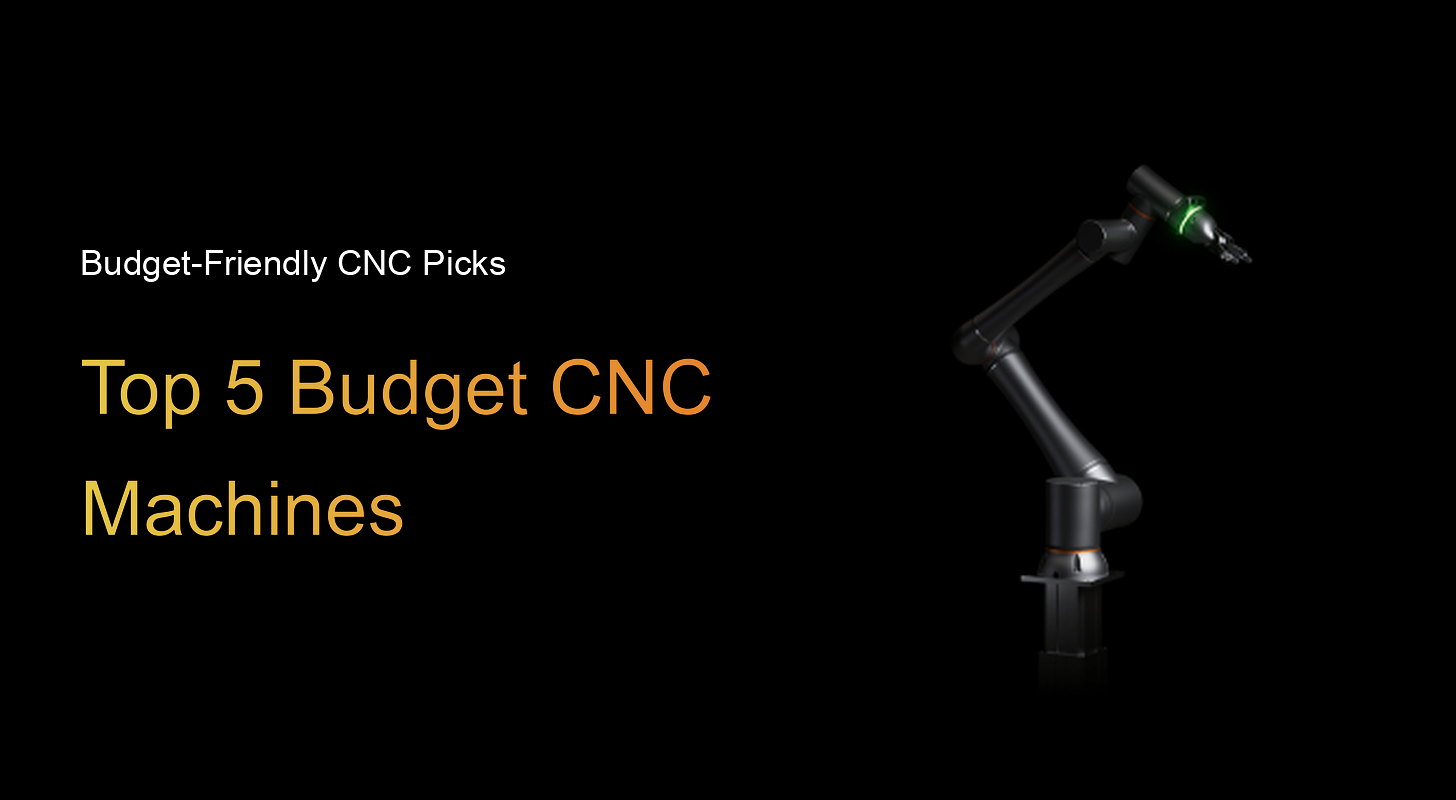In Q1 2026 alone, robotics startups secured over $2.26 billion in funding, with more than 70 % going to firms focused on warehouse and industrial automation.
Meanwhile, Figure AI is in talks for a $1.5 billion funding round at a $39.5 billion valuation, proof of just how hot top AI robotics companies have become.
AI is now table stakes for robotics startups, with investors seeking integrated platforms that combine strong software IP with proprietary datasets.
Top 10 AI robotics companies: TL;DR
What is an AI robotics company?
An AI robotics company is a business that develops and produces robots that use artificial intelligence (AI) to enhance their functionality and autonomy.
What separates the top AI robotics companies from traditional robot makers is how their machines handle complexity. Instead of simply following fixed instructions, AI‑driven robots learn from data, adjust to changing conditions, and work alongside humans in real time as adaptive and collaborative partners on the job.
For example, RO1 by Standard Bots combines industrial-grade motion control with built-in AI, allowing it to pick parts, track objects, and adapt to slight variations in position or lighting. This shift toward intelligence is why the best robotic companies now design systems where sensors, software, and movement work together from the ground up.
Top 10 robotics companies in the world
1. Standard Bots
- Industry served: Manufacturing, CNC machine tending, pick and place, welding, palletizing
- Funding and commercial traction: $63 million Series B funding led by General Catalyst with participation from Amazon Industrial Innovation Fund and Samsung Next. Ships robots within 4 weeks to customers ranging from small shops to Fortune 500 companies.
- Notable achievements or innovation: RO1 is the most affordable robotic arm in its class at $37,000 list price with 2x better accuracy and 1.8x stronger payload than competitors. Built and assembled in Glen Cove, NY, making it the only AI-powered cobot manufactured in the USA.
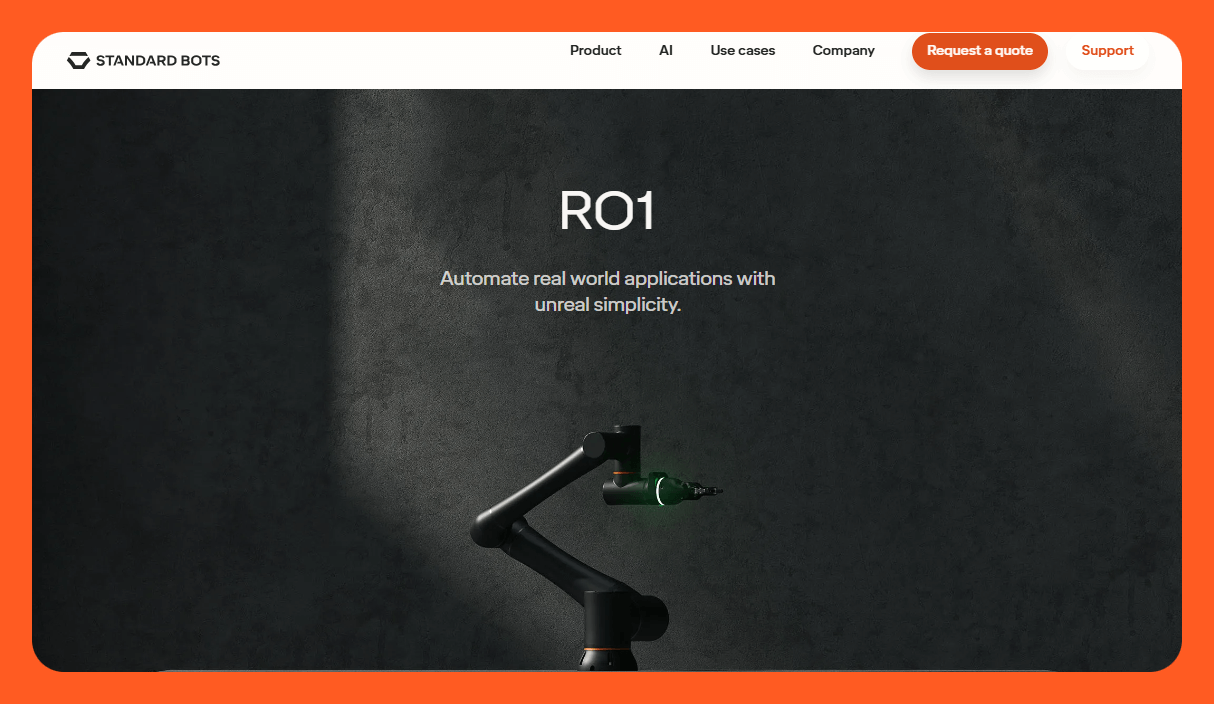
Standard Bots combines 6-axis precision with built-in AI to create robots that learn, adapt, and work alongside humans without complex programming. The RO1 robotic arm delivers 18 kg payload capacity, 1300 mm reach, and ±0.025 mm repeatability while featuring integrated 3D vision and no-code programming.
Unlike traditional industrial robots, which need safety cages and weeks of deployment, RO1 deploys in hours with intuitive touchscreen controls that any operator can master.
2. ABB Robotics
- Industry served: Manufacturing, automotive assembly, electronics, food and beverage, logistics
- Funding and commercial traction: ABB's robotics division generated $3.21 billion in revenue in 2024, though down from $3.64 billion in 2023. The company plans to spin off its robotics unit as a separate publicly listed entity in 2026, targeting a $3.5 billion valuation.
- Notable achievements or innovation: ABB crowned T-Robotics and Mbodi as winners of its 2024 AI Startup Challenge, providing $30,000 in funding to each company to develop generative AI solutions for industrial robotics.
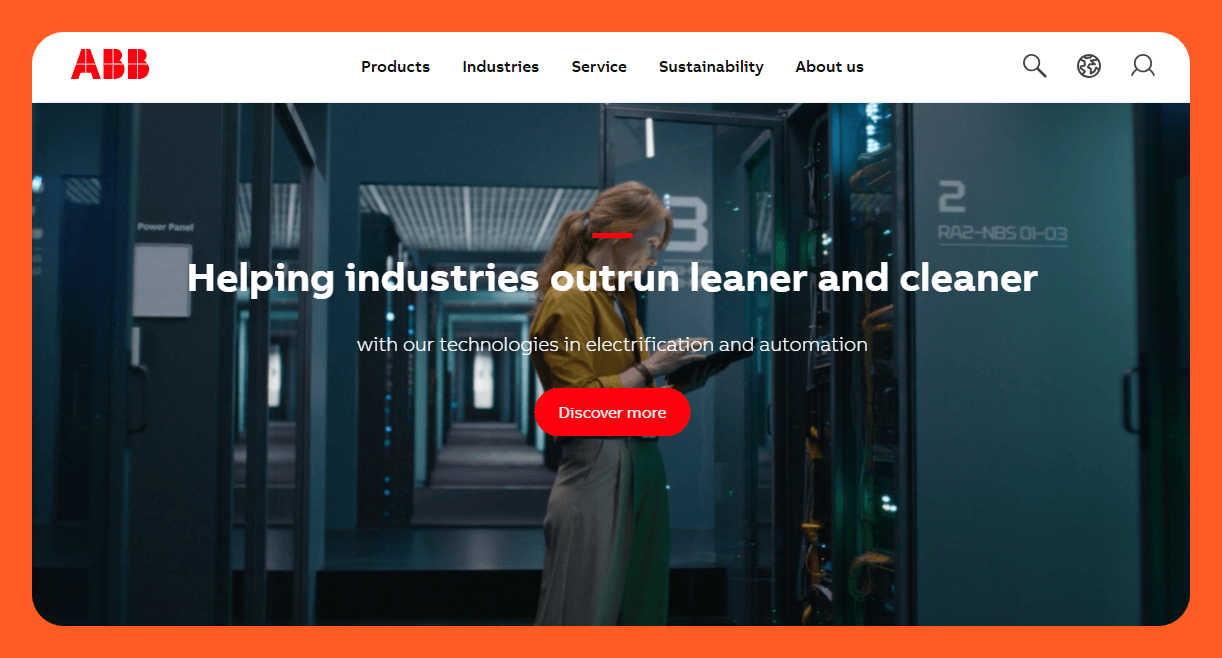
ABB operates as one of the world's largest industrial robotics suppliers with over 400,000 robots installed globally. The company integrates AI technologies, including machine learning, computer vision, and predictive analytics, into its robotic systems through initiatives like the 2024 AI Startup Challenge.
ABB's cobot YuMi and new AI-powered solutions focus on making industrial automation more adaptive and intuitive for manufacturers across the automotive, electronics, and logistics sectors.
3. FANUC Robotics
- Industry served: Automotive manufacturing, aerospace, electronics, medical devices, consumer goods
- Funding/commercial traction: FANUC reported consolidated net sales of ¥585,024 million ($4.1 billion) for the first 9 months of fiscal 2026, with robot sales totaling ¥242 million despite a 16.4% decline. The company opened a $110 million, 650,000 sq ft West Campus in Auburn Hills, Michigan in 2024.
- Notable achievements or innovation: FANUC partnered with French AI startup Inbolt to launch robots that perform precision tasks on continuously moving assembly lines, with General Motors as the first adopter of this breakthrough technology.
FANUC shipped its 1 millionth robot in 2023 and continues expanding AI-powered vision systems for real-time manufacturing applications.
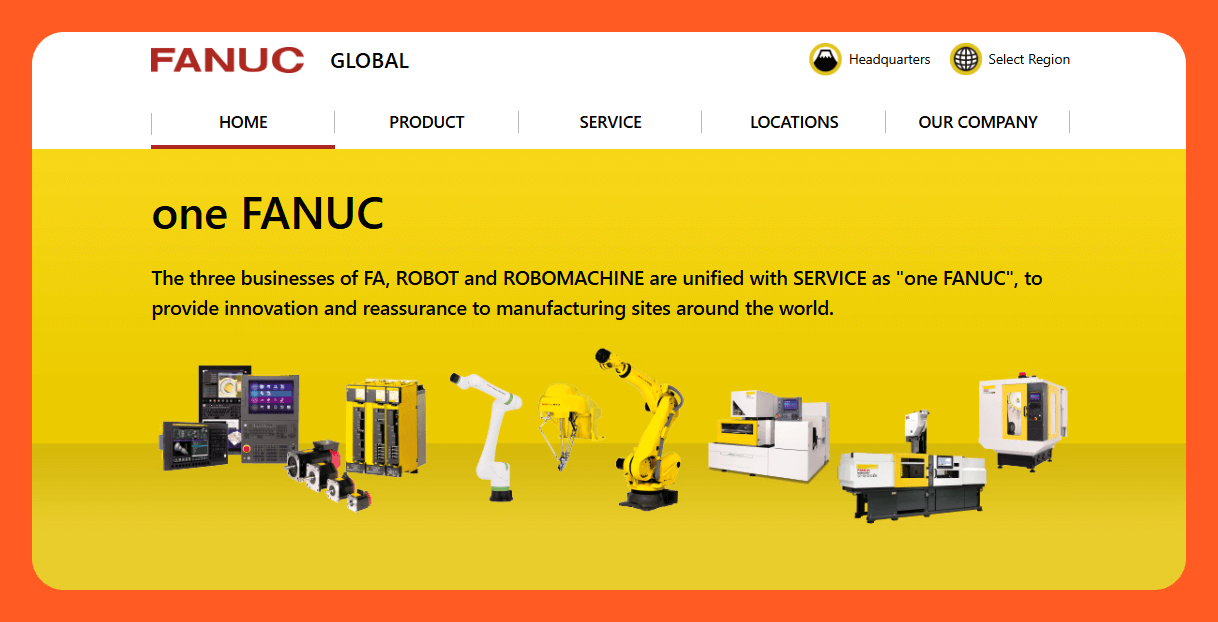
FANUC stands as one of the largest industrial robotics manufacturers globally, with over 240,000 robots installed worldwide, and it holds a 65% market share in CNC controls. The company integrates AI capabilities through machine vision, force control, and predictive maintenance systems across its industrial robot portfolio.
FANUC's R-50iA controller generation and collaboration with AI startups like Inbolt demonstrate a commitment to advancing intelligent automation in manufacturing environments.
4. KUKA Robotics
- Industry served: Automotive, aerospace, consumer goods, healthcare, logistics, construction
- Funding and commercial traction: KUKA reported €4.1 billion in order intake for 2024, up 1.3% from the previous year; however, KUKA’s sales declined 7.9% to €3.7 billion due to global economic uncertainties. The company was acquired by Chinese appliance manufacturer Midea in 2022.
- Notable achievements or innovation: KUKA unveiled the iiQKA.OS2 operating system in 2026, which includes a complete virtual robot controller and is designed to be ready for artificial intelligence and the new ISO 10218:2026 industrial robot safety standard.
The company operates the KUKA Innovation Award program, focused on medical robotics and human-robot interaction applications.
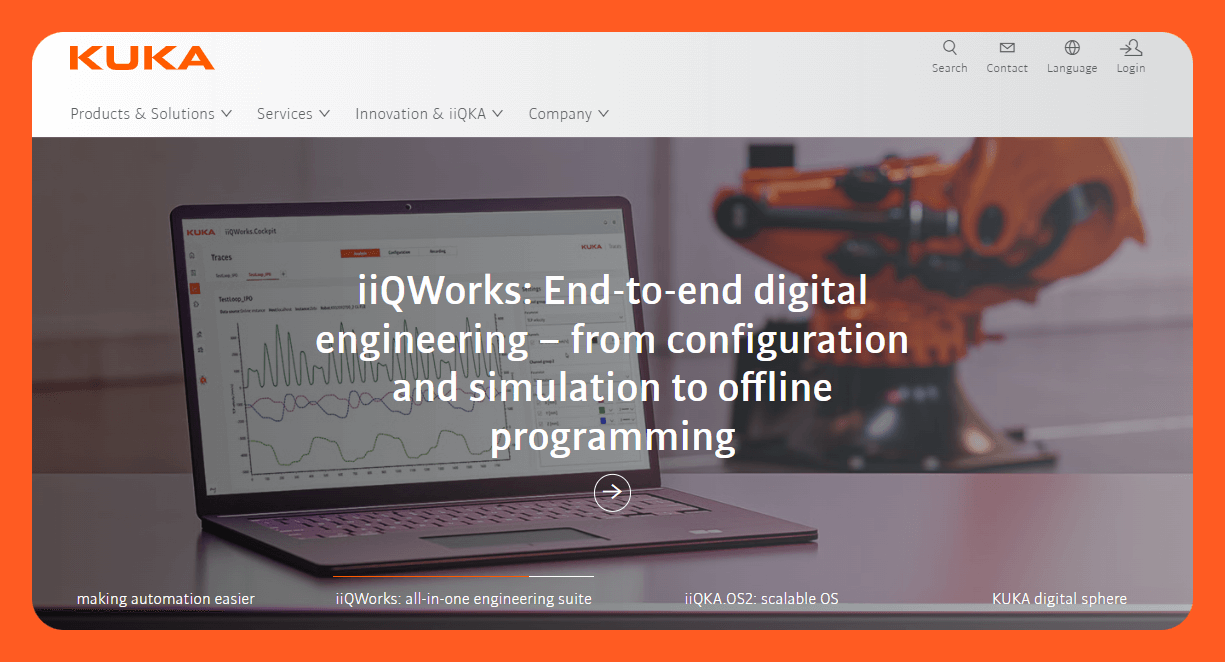
KUKA develops intelligent robotic systems with AI integration for industrial automation, healthcare, and logistics applications. The German robotics pioneer focuses on cobots, mobile platforms, and AI-powered solutions through its iiQKA operating system.
KUKA's approach combines traditional industrial robotics expertise with modern AI technologies. It includes machine learning, computer vision, and autonomous decision-making capabilities for diverse manufacturing environments.
5. Boston Dynamics
- Industry served: Construction, manufacturing, public safety, research, defense, logistics
- Funding and commercial traction: Private company owned by Hyundai Motor Group since 2021. Hyundai announced plans to purchase Boston Dynamics robots and integrate the company's manufacturing capabilities to accelerate growth.
- Notable achievements or innovation: Boston Dynamics robots demonstrate advanced AI robotics capabilities, including parkour, dancing, and complex manipulation tasks.
Spot robots are deployed commercially for inspection, surveillance, and data collection in hazardous environments, while Atlas showcases breakthrough achievements in bipedal locomotion and manipulation.
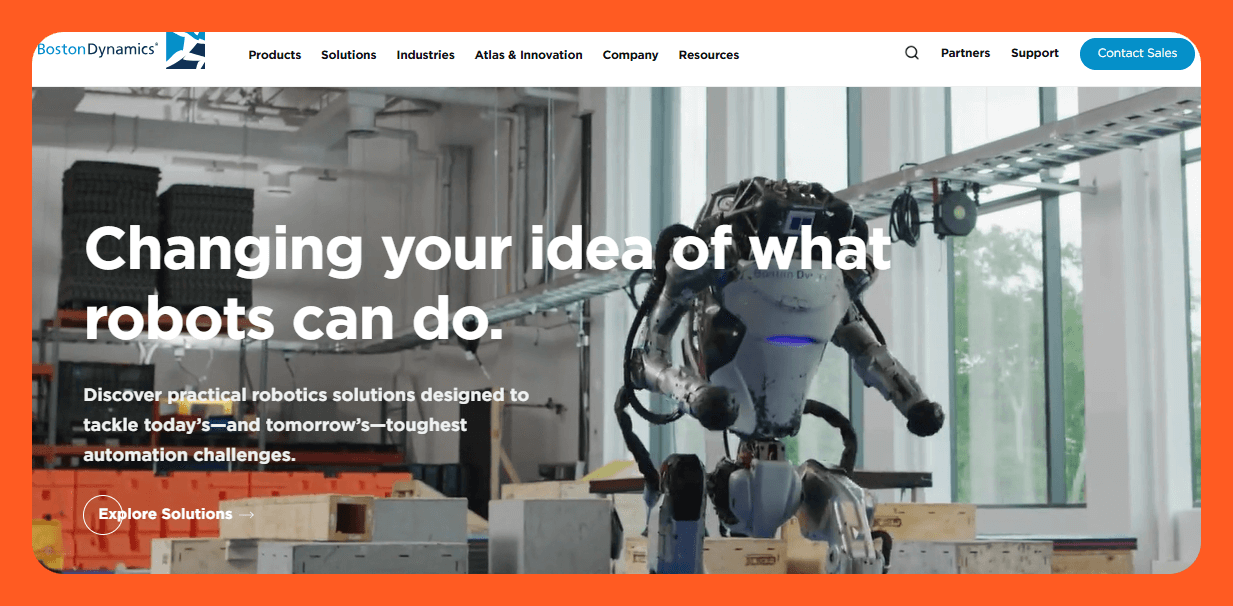
Boston Dynamics creates advanced mobile robots with AI-powered locomotion, navigation, and manipulation capabilities. The company's Spot quadruped robot and Atlas humanoid demonstrate cutting-edge AI integration for dynamic movement, environmental adaptation, and autonomous operation.
Boston Dynamics focuses on robots that can navigate complex real-world environments, handle unpredictable situations, and perform tasks traditionally requiring human agility and decision-making.
6. Unitree Robotics
- Industry served: Security, inspection, research, consumer entertainment, education
- Funding and commercial traction: Unitree raised several billion yuan in Series C funding led by Beijing Robotics Industry Investment Fund, achieving an 8 billion yuan valuation and unicorn status.
- Notable achievements or innovation: Unitree's Go1 and A1 robots demonstrate impressive AI capabilities, including autonomous following, obstacle navigation, and real-time decision-making.
Unitree's robots feature advanced computer vision systems that can operate autonomously in complex outdoor environments while maintaining stable locomotion across varied terrain types.
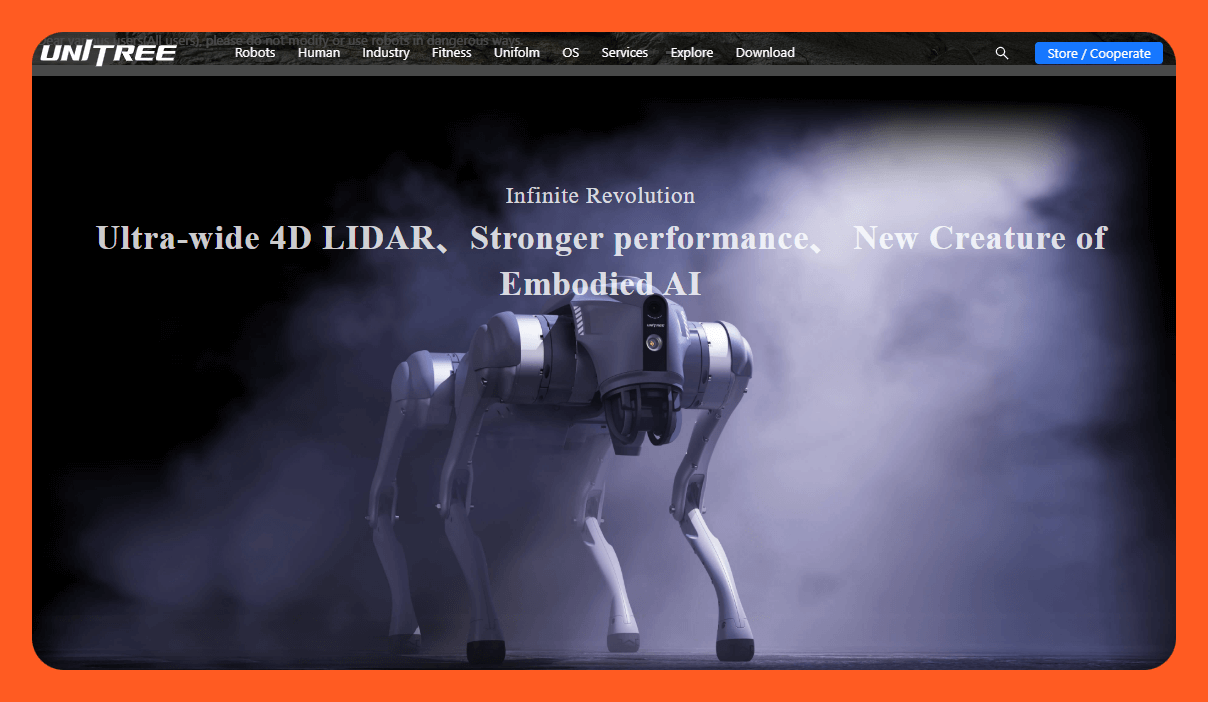
Unitree Robotics specializes in quadruped robots with AI-powered autonomous navigation, obstacle avoidance, and adaptive movement control. The Chinese company develops consumer and commercial robotic dogs that integrate computer vision, machine learning, and sensor fusion for real-world applications.
Unitree's robots feature advanced AI algorithms for terrain adaptation, human-robot interaction, and autonomous behavior in dynamic environments.
7. Sanctuary AI
- Industry served: Manufacturing, logistics, retail, research, general-purpose applications
- Funding and commercial traction: Raised over $100 million in funding with backing from prominent investors, including a $30 million Strategic Innovation Fund contribution from the Government of Canada. The company has demonstrated Phoenix robots performing various manufacturing tasks and continues expanding commercial partnerships.
- Notable achievements or innovation: Sanctuary AI's Phoenix robots demonstrate advanced capabilities like fine motor skills, natural language processing, and adaptive task learning in humanoid robotics. They follow an AI-first approach, so that robots can learn new tasks through demonstration and natural language instruction, representing significant advances in general-purpose robotics.
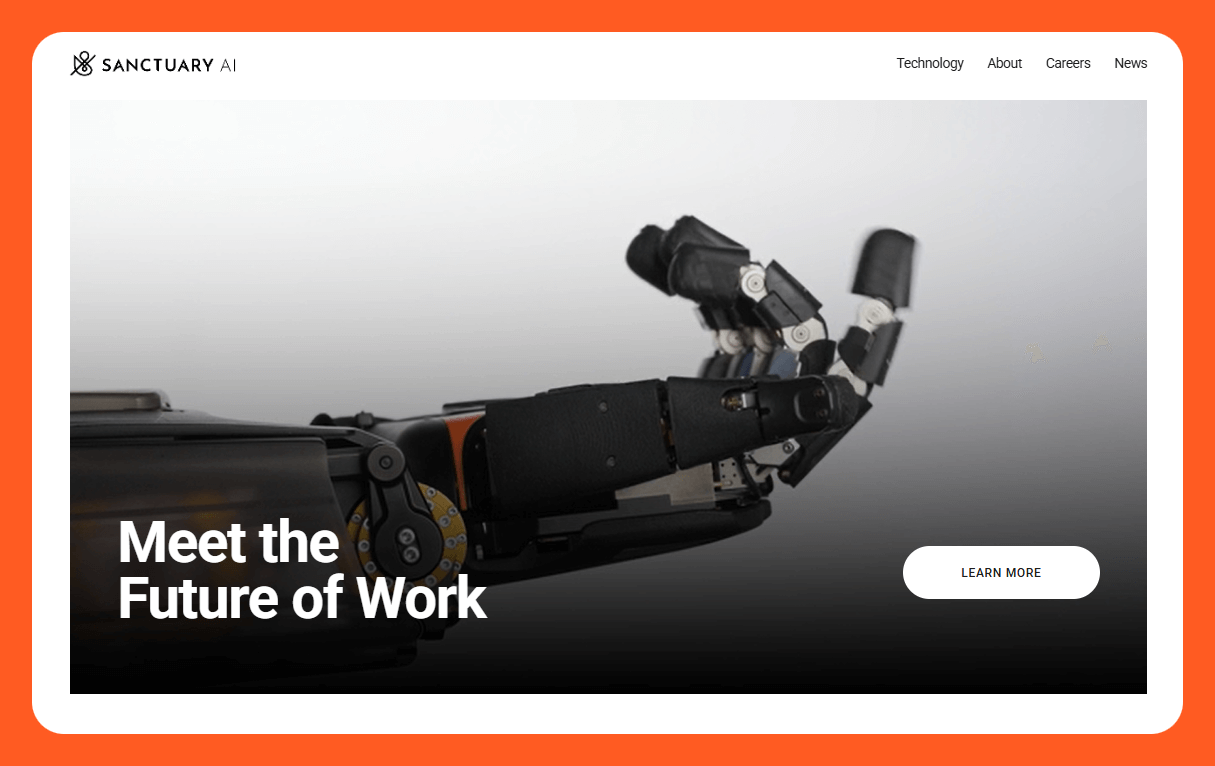
Sanctuary AI develops general-purpose humanoid robots powered by artificial intelligence for human-like task execution. The company's Phoenix robot integrates advanced AI systems, including LLMs, computer vision, and manipulation planning, to perform complex tasks in human-designed environments.
Sanctuary focuses on creating robots that can understand natural language instructions and adapt to diverse work environments without specialized programming.
8. Tesla Optimus
- Industry served: Manufacturing, logistics, and potentially consumer applications
- Funding and commercial traction: Funded through Tesla's operations with a multi-billion-dollar R&D budget. Optimus has plans to scale production to 1 million units/year by 2030 and potentially reach production scales of millions of units annually.
- Notable achievements or innovation: Tesla showcases Optimus robots performing increasingly complex tasks, including walking, object manipulation, and factory work. The integration of Tesla's AI and manufacturing expertise positions Optimus as a potential breakthrough in making humanoid robots commercially viable for widespread deployment.
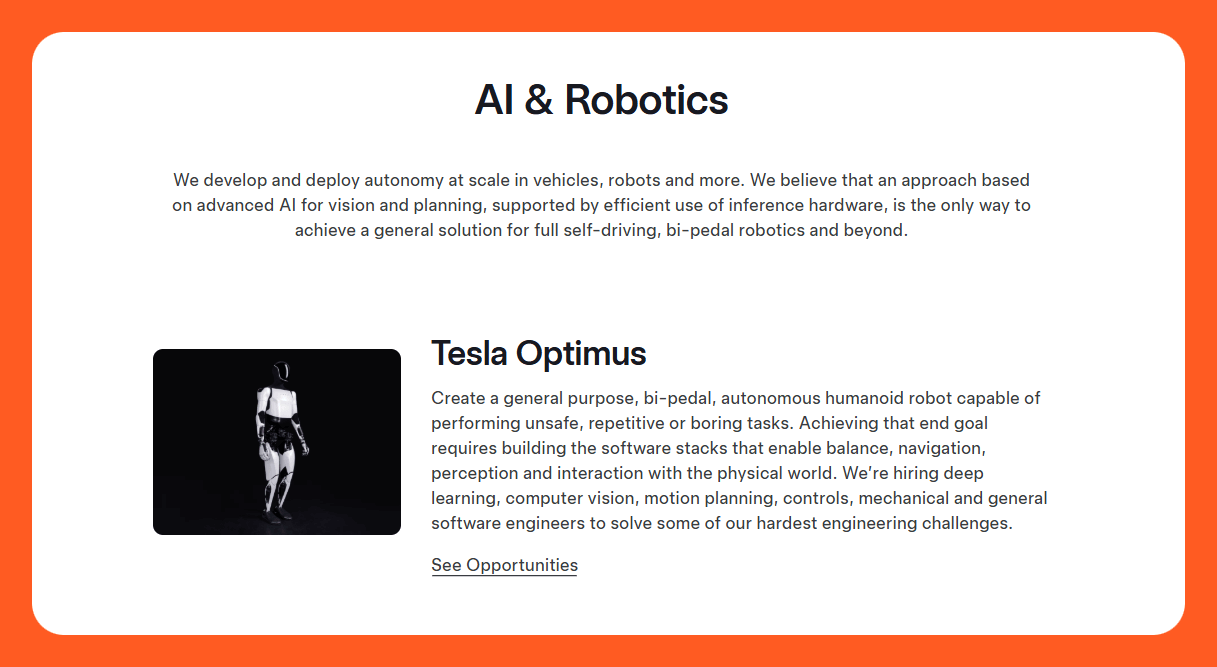
Tesla Optimus represents Tesla's entry into humanoid robotics, leveraging the company's AI expertise from autonomous vehicles. The bipedal robot integrates Tesla's Full Self-Driving computer, neural networks, and manufacturing capabilities to create a general-purpose humanoid for industrial applications.
Optimus aims to perform dangerous, repetitive, or boring tasks while learning from human demonstration and adapting to various work environments.
9. Kawasaki Robotics
- Industry served: Automotive, aerospace, semiconductor, food processing, logistics
- Funding and commercial traction: Part of Kawasaki Heavy Industries with diversified revenue streams across industrial segments, including aerospace, energy, marine engineering, precision machinery, and robotics. AI research and development for competitive positioning, with over 150,000 robots installed worldwide.
- Notable achievements or innovation: Kawasaki's duAro dual-arm robots for complex assembly tasks, featuring collision detection and coordinated arm movements that enable human-like manipulation. Kawasaki integrates machine learning algorithms for improved robot performance and develops collaborative systems in manufacturing environments.
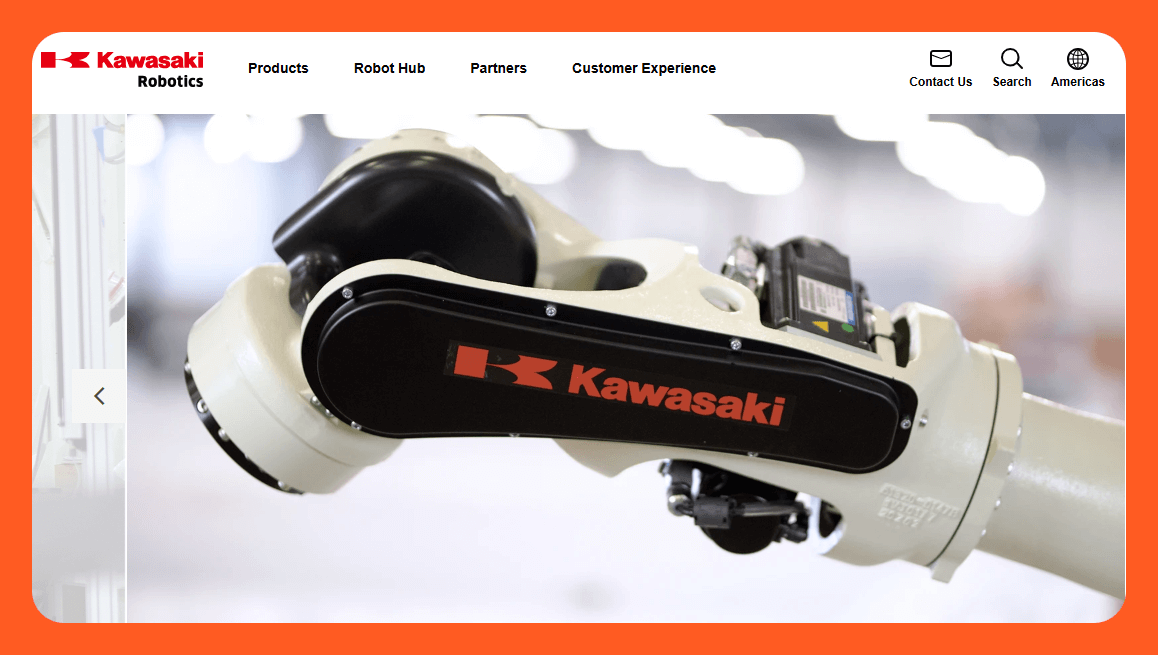
Kawasaki Robotics combines decades of industrial automation experience with modern AI integration for advanced manufacturing applications. They develop robots with AI-enhanced capabilities, including predictive maintenance, adaptive control, and intelligent path planning.
Kawasaki's focus on dual-arm humanoid robots and collaborative systems demonstrates a commitment to next-generation manufacturing automation.
10. Amazon Robotics
- Industry served: E-commerce fulfillment, logistics, warehouse automation
- Funding and commercial traction: Funded through Amazon's operations with billions invested in robotics automation. Amazon operates over 750,000 robots across its fulfillment network globally, representing one of the world's largest commercial robot deployments.
- Notable achievements or innovation: Amazon Robotics operates one of the world's largest deployments of AI-powered robots, with systems like Hercules, Pegasus, and Robin handling complex logistics tasks.
Amazon's Cardinal robot demonstrates advanced computer vision and manipulation capabilities for package handling up to 50 pounds, while continued AI integration improves operational efficiency across Amazon's fulfillment network.
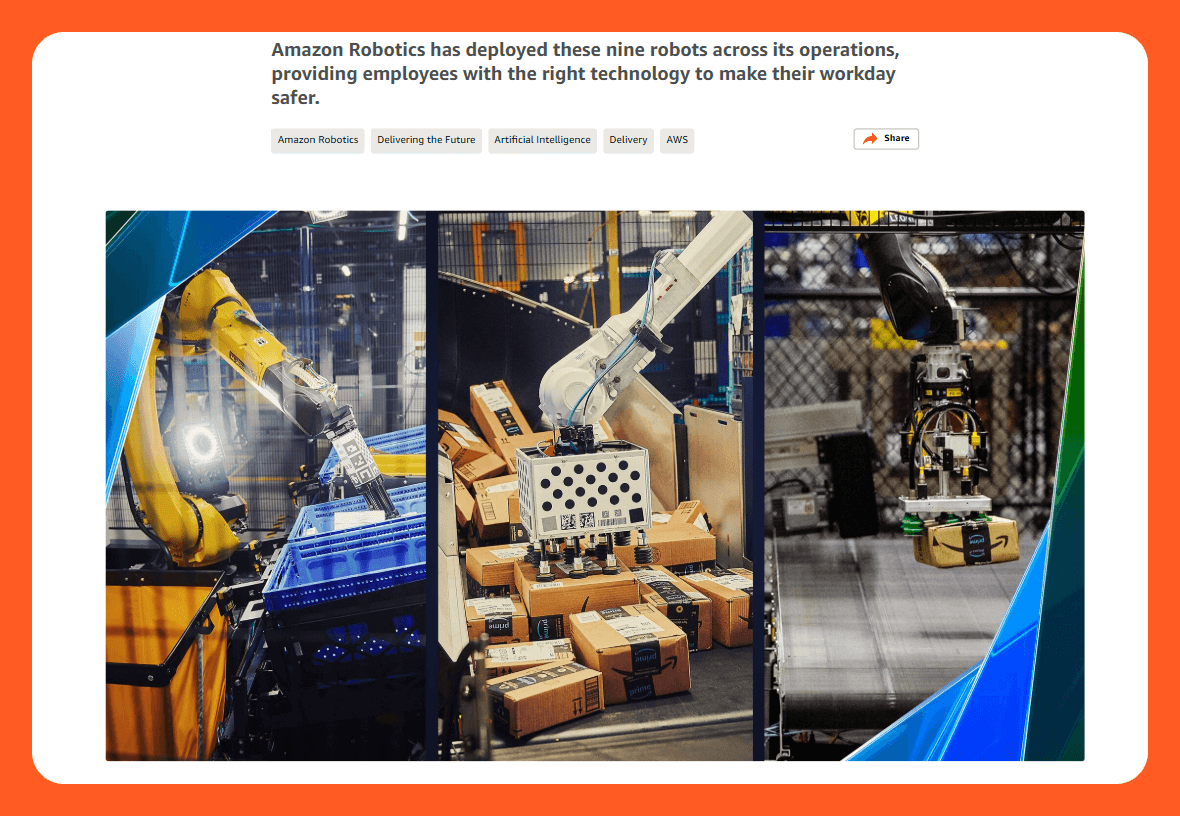
Amazon Robotics develops AI-powered automation systems specifically designed for warehouse and fulfillment operations. They create mobile robots, robotic arms, and sorting systems that use machine learning for inventory management, package handling, and logistics optimization.
Amazon's robots integrate computer vision, path planning, and predictive analytics to handle millions of packages efficiently in dynamic warehouse environments.
Honorable mentions: Best AI robotic companies in 2026
11. Agility Robotics: Creator of Digit, the humanoid robot designed for logistics and warehouse operations. Its robots are already deployed commercially at companies like GXO Logistics and Spanx, handling package manipulation and material transport with advanced AI-powered navigation and dexterity.
12. Intuitive Surgical: Pioneered robotic surgery with the da Vinci system, performing millions of minimally invasive procedures worldwide. Its AI-enhanced surgical robots provide surgeons with superior precision, 3D visualization, and tremor filtration for better patient outcomes.
13. Locus Robotics: Specializes in autonomous mobile robots for warehouse fulfillment, with systems like Locus Max handling payloads up to 3,000 pounds. Its AI-powered robots work collaboratively with human workers and feature advanced computer vision for dynamic warehouse navigation.
14. Hanson Robotics: Famous for creating Sophia, one of the most lifelike humanoid robots with advanced AI for natural conversation and emotional recognition. Although it’s primarily focused on research and demonstration, its robots showcase breakthrough achievements in human-robot interaction and social AI.
15. Miso Robotics: Develops AI-powered kitchen automation with its Flippy robot handling cooking tasks in commercial restaurants. Its systems use computer vision and machine learning to flip burgers, fry foods, and maintain consistent quality while working alongside human kitchen staff.
How to choose the best AI robotic company
Selecting the right AI robotics partner requires evaluating your specific operational needs against each company's capabilities and track record.
Here are a few key factors to consider:
- Industry expertise: Choose companies with proven experience in your sector, whether manufacturing, logistics, healthcare, or consumer applications
- AI capabilities: Look for advanced computer vision, machine learning integration, and adaptive learning systems that improve over time
- Deployment timeline: Consider setup complexity, training requirements, and time-to-value for your operations
- Total cost of ownership: Factor in initial purchase price, ongoing maintenance, software updates, and potential productivity gains
- Support and integration: Evaluate the company's service network, technical support quality, and ability to integrate with existing systems
- Scalability potential: Ensure the solution can grow with your business needs and adapt to changing requirements
What does this mean for automation?
The top AI robotics companies in 2026 are redefining manufacturing with adaptive automation, cobots, and practical AI integration. From Standard Bots' cost-effective shop floor systems to Boston Dynamics' advanced mobility, these companies show that AI-powered robotics is no longer theoretical; it’s already changing how industries operate.
What is the best AI robotic company?
Looking to upgrade your automation game? Standard Bots’ RO1 is the perfect six-axis cobot addition to any robotics setup, delivering unbeatable precision and flexibility.
- Affordable and adaptable: RO1 costs $37K (list). Get high-precision automation at half the cost of traditional robots.
- Precision and power: With a repeatability of ±0.025 mm and an 18 kg payload, RO1 handles even the most demanding CNC jobs.
- AI-driven simplicity: Equipped with AI capabilities on par with GPT-4, RO1 integrates seamlessly with CNC systems for advanced automation.
- Safety-first design: Machine vision and collision detection mean RO1 works safely alongside human operators.
Schedule your on-site demo with our engineers today and see how RO1 can bring AI-powered greatness to your shop floor.
FAQs
1. What is the difference between a robotics company and an AI robotics company?
The key difference between a robotics company and an AI robotics company is how their robots operate. Traditional robotics relies on pre-programmed actions, whereas AI robotics enables robots to learn, adapt, and make real-time decisions using technologies like machine learning, computer vision, and natural language processing. This allows them to handle unpredictability and improve over time.
2. Are there any AI robotics stocks worth investing in?
There are some AI robotics stocks worth considering. Publicly traded options include ABB, which plans a 2026 robotics spinoff, FANUC, Tesla for its Optimus project, and Amazon for warehouse robotics. Many leading AI robotics companies like Boston Dynamics and Standard Bots remain privately held.
3. How are AI robotics companies changing the manufacturing industry?
AI robotics companies are changing manufacturing by enabling flexible automation that adapts to changing production needs without costly reprogramming. They make robots safer to work alongside humans, reduce setup times from weeks to hours, and allow smaller manufacturers to access advanced automation once limited to large corporations.
4. What are the most common applications of AI in robotics?
The most common applications of AI in robotics are computer vision for object recognition, machine learning for adaptive behavior, and NLP for human‑robot interaction. Other common applications include predictive maintenance to prevent failures and path planning for autonomous navigation in dynamic environments.
5. Is Boston Dynamics publicly traded?
Boston Dynamics is not publicly traded. It is privately owned by Hyundai Motor Group, which acquired the company in 2021. Investors can gain indirect exposure through Hyundai Motor Group’s stock.
brighter future
Join thousands of creators
receiving our weekly articles.






